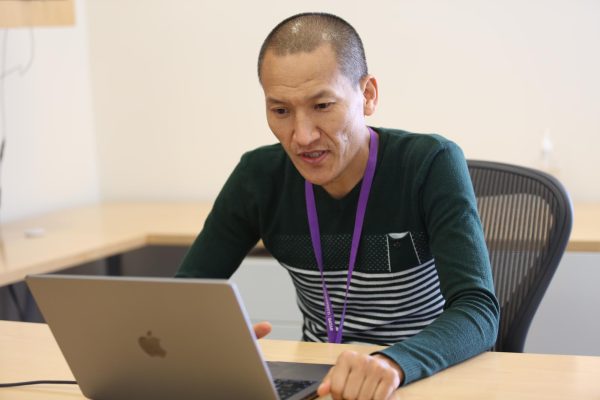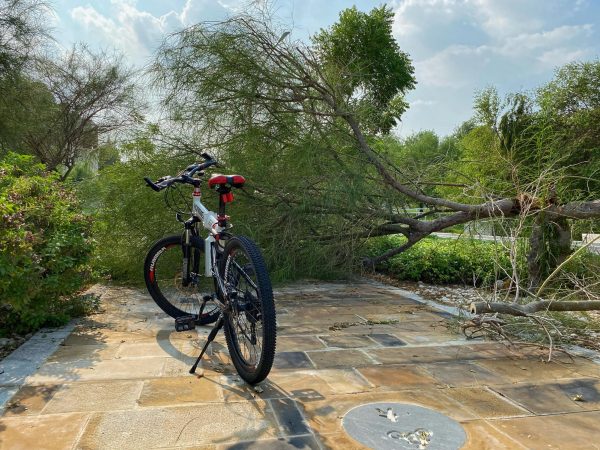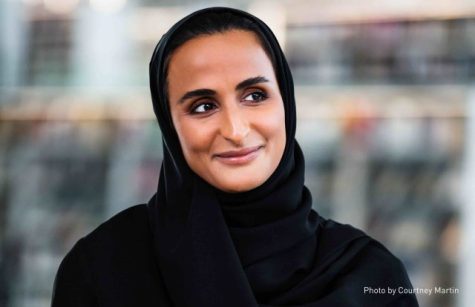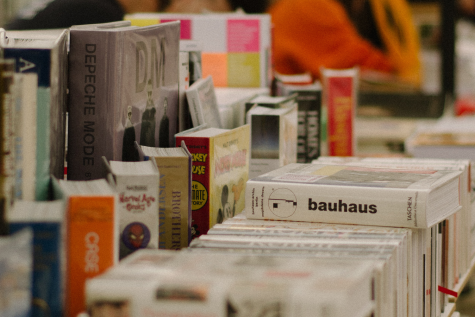Learning local dialect with Qatari Phrasebook app from GU-Q
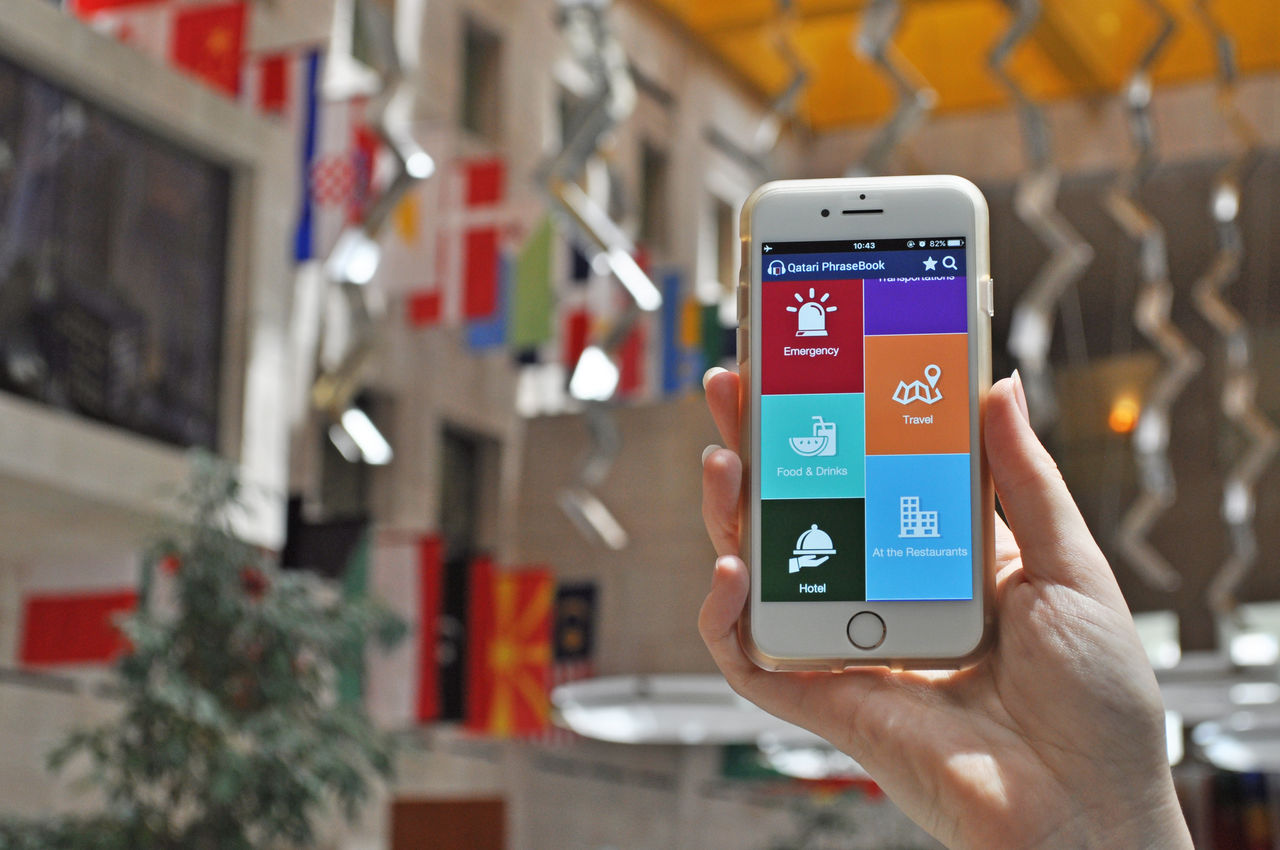
A new and free mobile app called the Qatari Phrasebook helps expatriates converse with locals in the Qatari Arabic dialect. It was launched by the Arabic program at Georgetown University in Qatar on Aug. 17.
The app provides Arabic text, spoken pronunciation and phonetic spelling for more than 1,500 common Arabic phrases and words, according to the GU-Q press release. It also contains 14 different word categories, such as numbers, weather, time and date, money, and transportation.
Formal Arabic is not commonly used in conversations in Qatar, which is why the Phrasebook app focuses on the local dialect. “People do not speak formal Arabic, so if you use it, it would be odd,” said Hany Fazza, an Arabic language instructor at GU-Q and creator of the app.
The app is available via the Apple App store and Google Play. Fazza said at least 5,861 individuals have downloaded the app on their Apple devices so far. For Android, at least 5,000 users have installed the app, according to data on Google Play. “I did not expect this response,” he said.
Fazza’s idea was to incorporate technology and teaching. “Some teachers require a tool to help with teaching. So I decided to dig deeper and create my own,” he said. He began working on the project two years ago with funding from GU-Q.
This app is free and accessible offline for a reason. “We do not want people’s money. We just want them to learn the language,” Fazza said.
Five students from the university who are native speakers recorded the pronunciation of all the words and phrases in the music room at of the university campus. Editing the audio files took around three months, according to Fazza. The students also worked with Fazza to select words and phrases to include in the app.
The team worked with Argus Technologies, an IT company in Qatar, to create the app. Aravind Sampath, business development manager at Argus, said the app is “a very good educational app.” Sampath said he enjoyed working with Fazza. “He gave his full support for the development. Before we ask anything, he will pass to us the requirements, corrections and clarification [for the app],” he said.
Revision was the most difficult part of the process. Fazza’s team and Arugus Technologies spent six months going back and forth, constantly making changes. “It was a long journey,” Fazza said. Argus Technologies helped create the completely offline app by handling the big volume of data, Arabic characters, and voice sound techniques, according to Sampath.
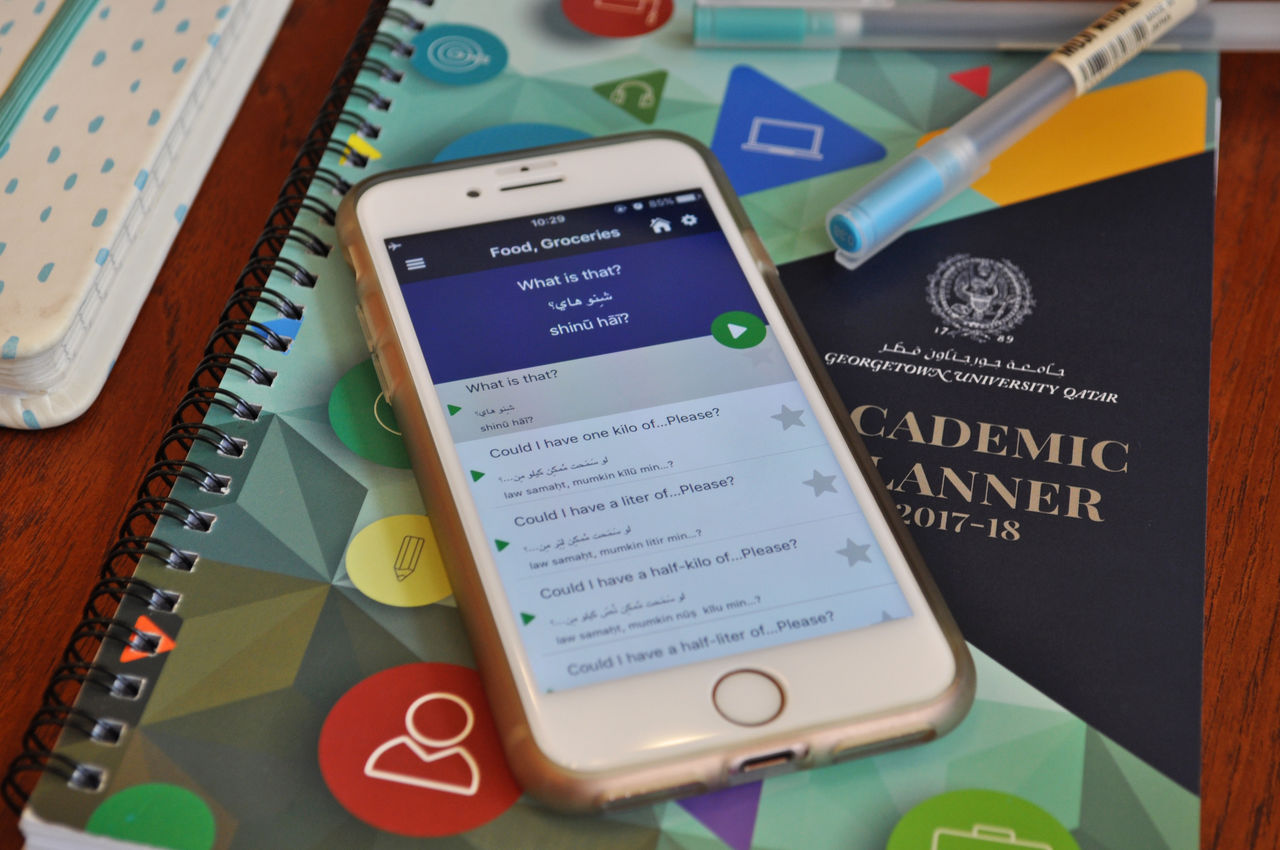
Some users who spoke with The Daily Q describe positive experiences with the app.
Fazal Ali Khan, trainer of technical support at Mazda Motor Corporation, said he uses this app to better communicate with his Arabic-speaking colleagues and customers. “I want to be one of them so I have decided to learn Arabic,” he said. He suggested that the app should include Arabic terms for vehicle parts and incorporate pictures for visual learners.
Saila Maham Shama, a student at the University of Toronto and a former resident in Doha, was thrilled to discover a “convenient way to learn the local Arabic” when she saw a Doha News article on her newsfeed.
“I always regretted not being able to learn the language in the country I was raised in. So I always look for opportunities to learn the language,” Shama said.
Fazza’s next project is another app called “Alef Baa,” which teaches formal Arabic. “I hope the Arabic language spreads around the world,” he said.




